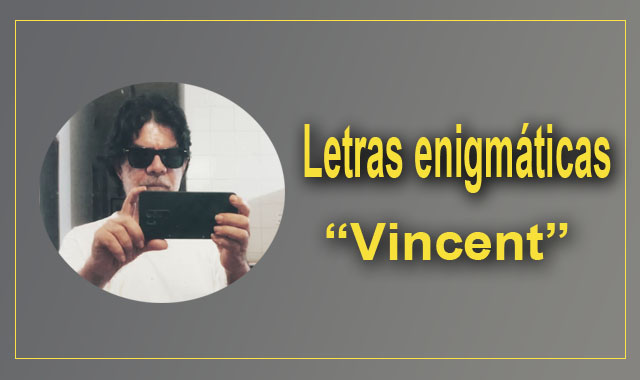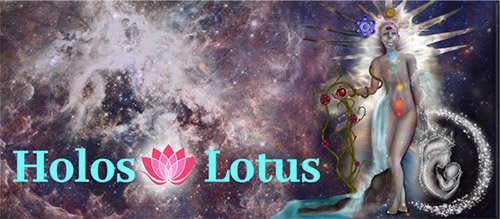Letras enigmáticas “Vincent” | Enigmatic lyrics “Vincent”

A los dieciséis años me hubiese encantado tener internet. Por aquel entonces escuchaba las canciones en inglés y me quedaba con la gran incógnita de no saber qué decían aquellas letras. El poco inglés que había aprendido en los estudios de bachillerato apenas me era suficiente para captar una que otra palabra.
Una de las formas de llegarle a las letras de las canciones era comprando alguna de las revistas especializadas en música pop y rock que se importaban desde los Estados Unidos.
En Caracas había dos o tres librerías donde se podían encontrar viejos ejemplares de la revista Rolling Stone, que ocasionalmente incluía una que otra letra de las canciones de los artistas que aparecían en las portadas.
Pero aún teniendo la letra en inglés no era nada fácil hacer la traducción con el diccionario. Muchas veces las letras estaban construidas con modismos o localismos que no aparecían en los diccionarios disponibles para mí.
Otra forma de saber qué decían las canciones era escuchando algunos de los especiales que los Disk Jockey (así le decían a los locutores) de las emisoras de radio hacían en homenaje a alguna estrella de la música. Pero uno se quedaba casi igual porque no había manera de copiar aquellas letras.
De todos modos el no saber lo que decían las letras no me impedía disfrutar y conectarme con las canciones que escuchaba en la radio. El lenguaje musical, que por supuesto incluye la voz, se conecta directamente con los sentimientos. Una sonoridad cualquiera es capaz de despertar emociones de todo tipo, suficientes para que la persona pueda establecer una conexión que le permita disfrutar la música sin ni siquiera entender lo que pueda haber escrito un autor.
Pero el no entender la letra en cierto modo también servía para estimular la imaginación. Yo escuchaba las canciones e inmediatamente me imaginaba alguna historia. Ahora, que no solo tengo la oportunidad de conocer las letras y las traducciones, sino que además puedo encontrar mucha información sobre el contexto del autor y su obra, he caído en cuenta que en la mayoría de las veces lo que yo me imaginaba no tenía nada que ver con lo que la canción decía.
Así me pasó con esta bella canción, Vincent, del cantante y compositor norteamericano Don McLean.
La canción comenzó a ser radiada en los primeros meses del año 1972. No recuerdo en cuál emisora la escuché, sería pedirle demasiado a mi memoria. Sin embargo, lo más probable es que la haya escuchado en alguno de los programas de Radio Capital, una emisora que para aquel momento tenía varios espacios dedicados a la música pop y rock en inglés. Quizá fue en el programa “La Hora 13”, conducido por el talentoso locutor y escritor Iván Loscher . Este era un programa de una hora de duración que comenzaba a la una de la tarde, de allí su nombre.
A diferencia de otras canciones “Vincent” no tiene ningún intro. La dulce y melodiosa voz de Don McLean, comienza directamente hablando de noches con estrellas, acompañado de una guitarra acústica que va tocando él mismo, pulsando cada cuerda de forma independiente. Hay una parte en que un lindo arreglo de violines acentúa el carácter nostálgico de la canción.
Cada vez que escuchaba la canción pensaba que estaba dirigida a algún hombre mayor, quizá el padre del autor o alguna figura relevante en su vida.
Esa incógnita me acompañó durante muchos, muchos años. En algún momento conseguí la letra y la traducción, pero no lograba descifrar el enigma. Leía una y otra vez los versos y no lograba descifrar a quién iba dirigida aquella historia, cuál sería la fuente de la inspiración del autor.

Fue con la llegada de internet cuando al fin pude salir de dudas. Buscando por aquí y por allá encontré que el tema está inspirado en la vida del célebre pintor de los países Bajos, Vincent Van Gogh, que padeció la enfermedad mental en una etapa de su vida y que murió en extrañas circunstancias, en lo que algunos especulan fue un suicidio. En el video que les dejo, con la letra en inglés, se presentan muchos cuadros del pintor.
Don McLean se inspiró en el tema luego de leer una biografía del célebre pintor, y en una parte de la letra, donde aumenta el tono melancólico de la canción, deja saber que de no haber sido por la enfermedad mental que sufrió el pintor quizá él, Mclean, no hubiese sentido la profunda conexión con su obra.
McLean es de los que opinan que la demencia de Van Gogh le abrió una lucidez al pintor para hacer más potente su arte. Pero como suele ocurrir en nuestro tiempo hay otros que niegan esa hipótesis diciendo que el pintor no hacía ninguna obra mientras atravesaba sus crisis mentales.
De cualquier modo esto sería lo menos relevante. Lo importante es que esa inspiración nos dejó esta gran canción inmortal para el disfrute de los oyentes.
Gracias por tu tiempo.


When I was sixteen years old I would have loved to have the internet. At that time I listened to songs in English and I was left with the great unknown of not knowing what those lyrics said. The little English I had learned in high school was barely enough to pick up a word or two.
One of the ways to get to the lyrics of the songs was to buy some of the magazines specialized in pop and rock music that were imported from the United States.
In Caracas there were two or three bookstores where you could find old copies of Rolling Stone magazine, which occasionally included a few lyrics of the songs of the artists that appeared on the covers.
But even if the lyrics were in English, it was not easy to translate them with a dictionary. Many times the lyrics were constructed with idioms or localisms that did not appear in the dictionaries available to me.
Another way to know what the songs were saying was to listen to some of the specials that the Disk Jockey (that's what they called the announcers) of the radio stations did in tribute to some music star. But you stayed almost the same because there was no way to copy those lyrics.
Anyway, not knowing what the lyrics said did not prevent me from enjoying and connecting with the songs I heard on the radio. Musical language, which of course includes the voice, connects directly with feelings. Any sonority is capable of arousing emotions of all kinds, enough for a person to establish a connection that allows them to enjoy the music without even understanding what an author may have written.
But not understanding the music in a way also served to stimulate the imagination. I would listen to the songs and immediately imagine some story. Now that I not only have the opportunity to know the lyrics and translations, but I can also find a lot of information about the context of the author and his work, I have realized that most of the time what I imagined had nothing to do with what the song said.
So it happened to me with this beautiful song, Vincent, by the American singer and songwriter Don McLean.
The song began to be played on the radio in the first months of 1972. I don't remember on which station I heard it, it would be asking too much of my memory. However, it is most likely that I heard it on one of the programs of Radio Capital, a station that at that time had several spaces dedicated to pop and rock music in English. Perhaps it was on the program “La Hora 13”, hosted by the talented announcer and writer Iván Loscher. This was an hour-long program that started at one o'clock in the afternoon, hence its name.
Unlike other songs “Vincent” has no intro. The sweet and melodious voice of Don McLean, starts directly talking about nights with stars, accompanied by an acoustic guitar that he plays himself, plucking each string independently. There is a part of the song where a nice violin arrangement accentuates the nostalgic character of the song.
Every time I listened to the song I thought it was addressed to some older man, perhaps the author's father or some other relevant figure in his life.
That unknown stayed with me for many, many years. At some point I got the lyrics and the translation, but I could not decipher the enigma. I read again and again the verses and I could not decipher to whom that story was addressed, what would be the source of the author's inspiration.

It was with the advent of the Internet that I was finally able to find out. Searching here and there I found that the song is inspired by the life of the famous painter from the Netherlands, Vincent Van Gogh, who suffered from mental illness at one stage of his life and died in strange circumstances, in what some speculate was a suicide. In the video I leave you, with the lyrics in English, many of the painter's paintings are presented.
Don McLean was inspired by the song after reading a biography of the famous painter, and in a part of the lyrics, where the melancholic tone of the song increases, he lets it be known that if it had not been for the mental illness suffered by the painter, perhaps he, McLean, would not have felt the deep connection with his work.
McLean is of the opinion that Van Gogh's dementia opened a lucidity to the painter to make his art more powerful. But as is often the case in our times, there are others who deny this hypothesis, saying that the painter did not make any work while he was going through his mental crises.
In any case, this would be the least relevant. The important thing is that this inspiration left us this great immortal song for the enjoyment of the listeners.
Thank you for your time.
Translated with DeepL.com (free version).








Comunidad Be Entrepreneur

Excellent.
Thank you so much.
Algunas letras no se entendian para nada y solo las tarafeaba cono nansns life is live. Jajaja de igual manera me fascina las meloias. Igual me paso con la cancion cuando un hombre ama a una mujer, hice plop, no me gusto la letra
Saludos migo @irvinc.
Así es querida amiga @mafalda2018. Más de una vez me quedo sorprendido por lo que dicen las letras, creo que son cuestiones culturales. Gracias por pasar y comentar. Un fuerte abrazo desde Maracay.
Congratulations @irvinc! You have completed the following achievement on the Hive blockchain And have been rewarded with New badge(s)
Your next target is to reach 300000 upvotes.
You can view your badges on your board and compare yourself to others in the Ranking
If you no longer want to receive notifications, reply to this comment with the word
STOPThank you so much.
All good @irvinc! You're a true Hive champion! Onward to that new goal!
Do you want to get involved? Do you want to support music and this project? Follow us to keep you updated and read our Introduction post!
🎶 Join us on our Discord Server! 🎵
Thank you so much.